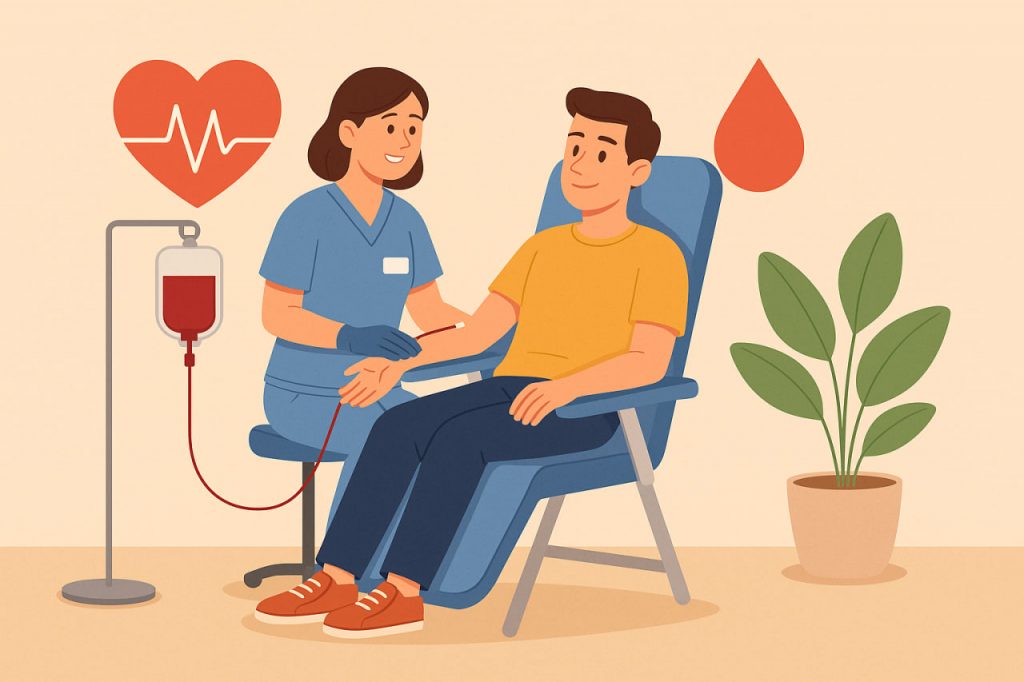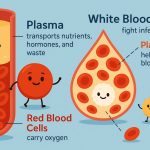Donating blood is a simple yet powerful act that saves lives. Every year, millions of people around the world require blood transfusions due to surgery, trauma, childbirth complications, or medical conditions like anemia and cancer. To ensure that donation is safe for both donor and recipient, there are important rules and recommendations that every donor should know.
1. Who Can Donate Blood?
- Age: Most countries allow donation between 18 and 60–65 years.
- Weight: Minimum of 50 kg (110 lbs) is usually required.
- Health: Donors must be in good general health, free of infections or recent illnesses.
- Medical restrictions: People with certain chronic diseases, recent tattoos or piercings, or recent surgeries may have to wait before donating.
2. Preparation Before Donation
- Eat a light meal 2–3 hours before donating; avoid fatty or heavy foods.
- Drink enough water — hydration helps prevent dizziness.
- Do not consume alcohol.
- Sleep well the night before to keep your body strong.
- Bring an ID card or document for registration.
3. The Donation Process
- Registration and medical check – A short questionnaire and a quick health exam (blood pressure, hemoglobin level).
- Donation – About 450 ml of blood is collected; the process takes 10–15 minutes.
- Rest and refreshment – Donors rest for 10–20 minutes and receive water or juice.
4. After Donation
- Drink more fluids during the day.
- Avoid heavy physical activity or lifting weights for 24 hours.
- Eat iron-rich foods (meat, beans, spinach, nuts) to help restore blood.
- The body replaces plasma within 24 hours and red blood cells within a few weeks.
5. Frequency of Donation
- Men: up to 4–5 times a year.
- Women: up to 3–4 times a year (due to natural blood loss during menstruation).
- The minimum interval is usually 8 weeks between donations.
6. Benefits of Being a Donor
- Saves lives — one donation can help up to three patients.
- Free health screening — each donation includes tests for infections (HIV, hepatitis, syphilis, etc.).
- Promotes healthy blood renewal and sometimes lowers risks of heart disease (according to studies).
- Psychological satisfaction — donors often report a sense of purpose and pride.
7. Important Precautions
- Self-medication is not recommended; if unsure about health, always consult a doctor.
- Never donate if you feel unwell — this protects both you and the recipient.
- Inform staff about medications or recent health changes.
Conclusion
Blood donation is a safe, life-saving practice that benefits both patients and donors. By following preparation rules, donating responsibly, and maintaining good health, donors become vital contributors to public health. Even one donation can make the difference between life and death for someone in need.
Glossary
- Hemoglobin – protein in red blood cells that carries oxygen.
- Plasma – the liquid portion of blood that carries cells and nutrients.
- Transfusion – the process of transferring blood from a donor to a recipient.
- Anemia – a condition caused by low red blood cell levels.
- Screening – medical tests to ensure safety before blood donation.


